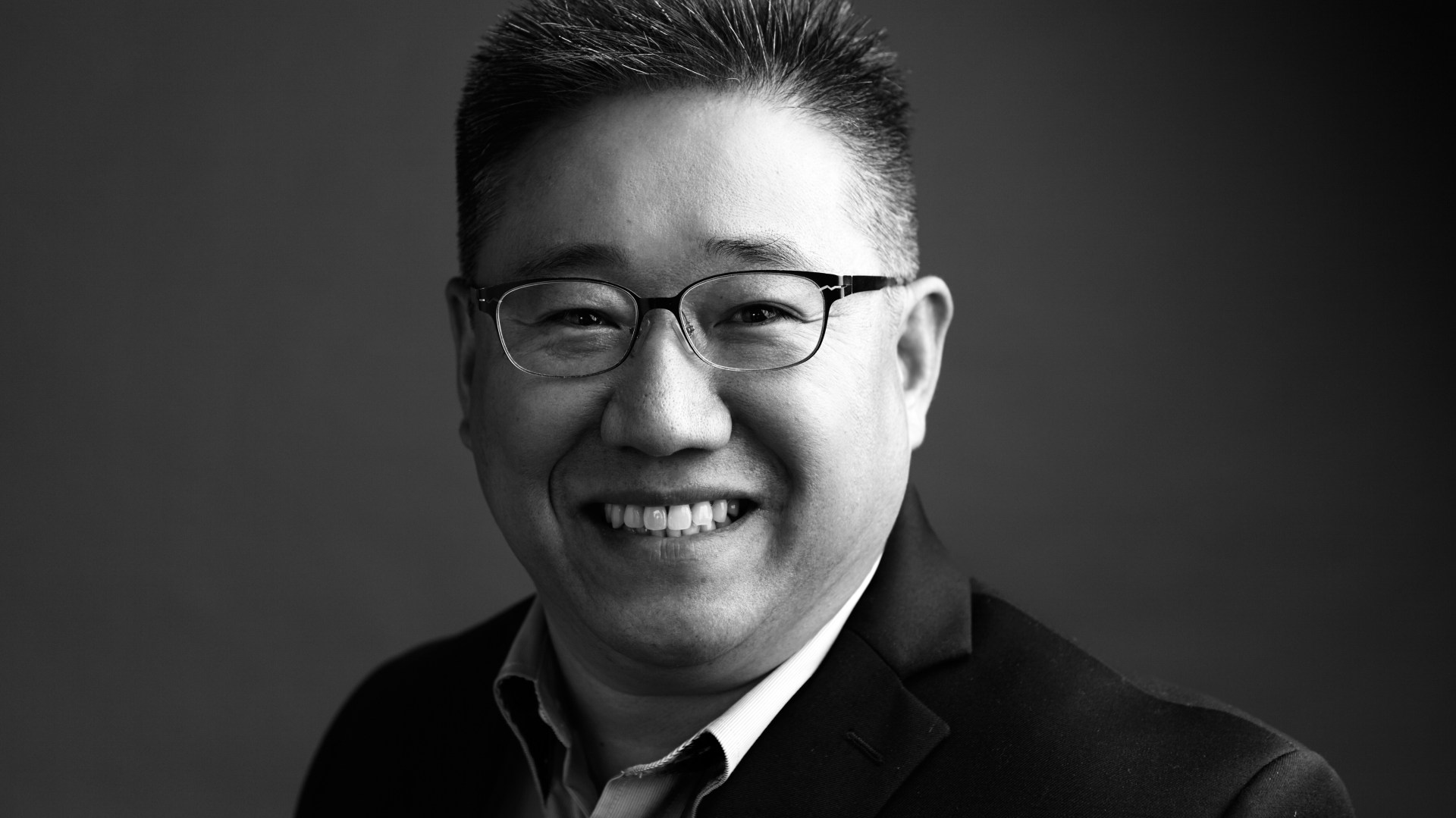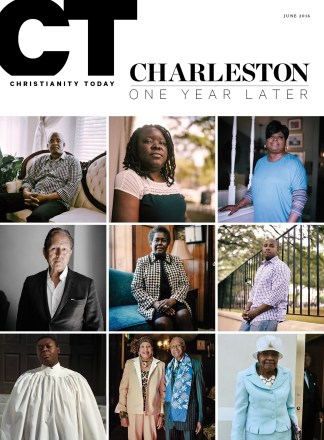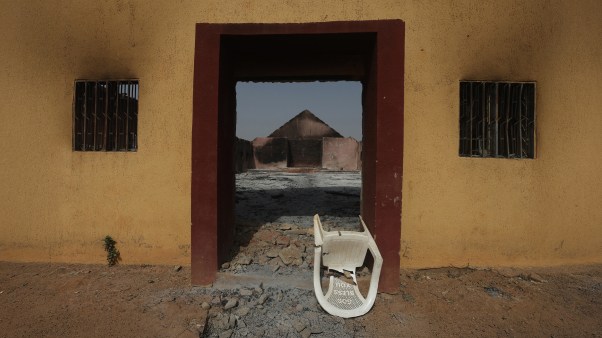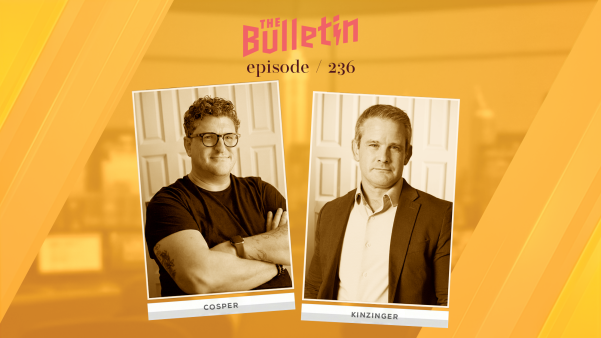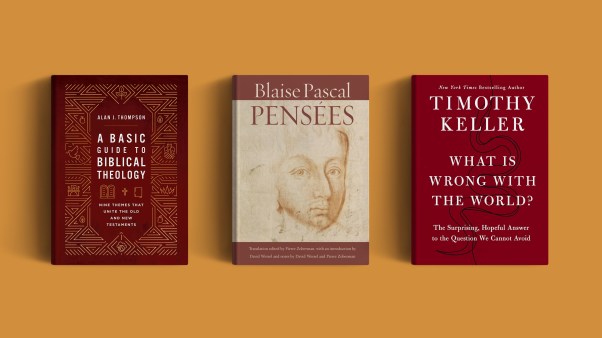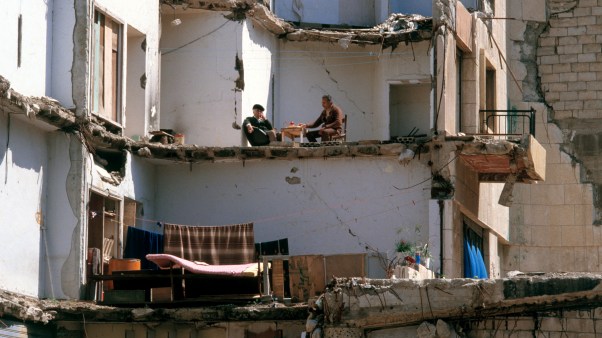Has a persecuted Christian ever had an unlikelier champion than Dennis Rodman? The eccentric former NBA star made a bizarre cameo in the drama surrounding Kenneth Bae, an American missionary accused of plotting to overthrow the North Korean government and condemned to 15 years of hard labor. Shortly after the April 2013 sentencing, Rodman—who has made several visits to the isolated nation and claims friendship with its reclusive leader, Kim Jong-un—took to Twitter with an urgent request: “I’m calling on the Supreme Leader of North Korea or as I call him ‘Kim,’ to do me a solid and cut Kenneth Bae loose.” (The mercurial basketballer later denied his support during a testy CNN interview.)
At the time of his capture, Bae was visiting North Korea for the 15th time in two years as a guide for his North Korean tour company. Under the Nations Tours banner, about 300 Christians had visited Rason, a special economic zone that allowed international investment. Bae hoped to expose them to the country and encourage them to begin praying for it, all while bringing investment income to the government. Bae’s arrest came after he entered the country with an external hard drive filled with files and photos documenting missionary work. Authorities seized on references to Operation Jericho, a prayer mobilization plan that invoked military metaphors, to justify charges of insurrection. Released in November 2014 after intense American lobbying, Bae was the longest-serving US prisoner in North Korean history. He spoke with CT assistant editor Morgan Lee about his imprisonment, his ongoing love for the North Korean people, and his new memoir, Not Forgotten (Thomas Nelson).
What led you to become a missionary?
In 1984, I attended a retreat with the theme “A Vision in Christ.” I started asking God what I should become, and the word I received was shepherd. But I wasn’t sure what that meant.
After graduating high school, I attended a retreat organized by some Chinese churches. The speaker invited anyone willing to dedicate their life for mission to China to come forward. There were 500 people in the hall, and I was first on the stage. Ever since, I’ve known God was calling me to be a missionary to China.
Growing up in South Korea, What did you learn about North Korea?
We were taught the evil of communism. Between 1997 and 2003, I learned from Western and South Korean media about [the great famine] in North Korea, especially about people dying from hunger. It was shocking to hear from defectors and missionaries that [South Korean Christians] had been working there. In 2005, I visited a Chinese border city called Dandong. That’s when I first felt a special calling for North Korea.
Were you scared entering North Korea the first time?
I’d been living in Dandong for a couple years, but I’d never been across the border. I was nervous. But once I could show I had an invitation from the government, it wasn’t as tense. My next visit was to explore the idea of bring ing tourists into North Korea. This was a little scarier. It was just me, my wife, and another couple. But we still had direct approval from the government.
What was labor camp like?
At first, it didn’t sound that bad. I had been in solitary detention in Pyongyang for five months—I didn’t see anybody except the guard and the prosecutor. What I had heard about labor camp was pretty horrible, but at the same time, I thought, at least I’ll have other people in my cell. When I got there, I was the only prisoner. I was given a room by myself, divided into three sections: a small living area with a TV and desk, a bedroom, and a bathroom. In the morning, I’d get up at six, wash, and get ready for a meal. Then I had one hour before being sent to work in the field. Every day I would put on the full armor of God by reading the Bible, worshiping and praying, and asking the Lord for strength and protection.
I worked in a bean field, plowing and planting the seeds. The soil was half rock. Monday through Saturday, I would work for eight hours a day, with a few breaks and an hour for lunch. On Sunday I could rest, but I was only allowed to sit and watch TV, with just a few hours for reading or doing laundry.
After a few months of this routine, I lost a lot of weight. So they would send me to the hospital, where I would gain some of it back, and then return me to the labor camp. I was like a yo-yo, losing 20 pounds here and then gaining back about 10. I suffered from malnutrition, arthritis, and other complications.
What did you think about while you were working in the fields?
There were at least two or three guards watching nearby. It was very intimidating. But once it got really hot, they would move away to find shade or a place to sit. Mainly, I just focused on the work I was given, whether that was working the bean field, crushing core ash, digging a hole, moving rocks, or cleaning the road. I thought, I just have to take one day at a time.
Thinking about family or people back home was difficult. So I tried to block those thoughts. Oftentimes I would just sing—different praise songs, Elvis tunes, and songs I enjoyed in high school choir. Later, I would receive a letter from my high school choir teacher, who had been thinking about me and rallying support from church friends and people at the school.
Were you able to make relationships with your guards or staff?
Everybody knew I was a missionary and a pastor. They had heard about Christians, but had never seen a real Christian among them. I reminded myself that even though I was a prisoner, I was still a missionary.
Officially, I was known as Prisoner 103, or just “103.” But when we were alone, sometimes they would say, “Pastor, can I talk to you?” And we would talk about some problem at home. I would do family counseling or premarital counseling. One guard had a teenaged son who got sick a lot. So I gave him advice about taking vitamin C.
One time, I learned that a human rights ambassador was coming to negotiate for my rescue. I was very excited, and I basically told the guards, “I’ll be going home soon. Thank you for everything.” I sang a goodbye song in Korean: “Farewell. Farewell. I see you again next time.” One of the guards said, “Don’t go anywhere. We’re lucky you’re here. Stay a little longer, because we like talking to you.” I told them the sooner I go, the sooner I can come back—but not as a prisoner. We had begun to build true friendship. They realized, “He’s a missionary, but he’s not all bad.”
Did any guard or staff become a Christian?
Not that I know of. I was cautious about sharing the gospel, because if someone accepted Christ and someone else found out, that person was going to prison. But people would ask, “We are the guards and you are the prisoner. How come you look happier than us? Where does your joy come from?”
One day, a guard said, “Pastor, if I believe in God like you, what’s in it for me?” Another asked, “If I want to believe in God, what do I have to pay the church?” I explained that there is no price—that God wants to hear and answer our prayers, to protect us and provide for us. They had never heard anything like that before.
At the end of the conversation, someone said, “You said God answered your prayers. But if God is real, then how are you still here?” I explained that God has different plans. “Maybe,” I said, “his plan includes you. How will you know anything about God unless I’m here?” He said, “That’s true. I never heard anything like this before.”
Most of the time, I couldn’t share the gospel directly. But I hoped the guards would see a glimpse of the gospel in me, so that something would happen even without me sharing the Word. When I left, a guard shook my hand, and we both said, “I want to see you again.” I was tearing up, knowing that God had a plan for my time in North Korea.
What did you think of Dennis Rodman’s involvement?
Someday, I would like to thank him in person. He at least believed he was trying to help. Because of his involvement, media attention increased. Obviously, I didn’t see his interview on CNN. [Rodman grew agitated after host Chris Cuomo asked if he would continue lobbying for Bae’s release during his trip to Pyongyang for an exhibition basketball game.] But I saw him on North Korean TV. There were about 25,000 people in the auditorium for the game. And Rodman was sitting next to Kim Jong-un, smoking a cigar. It was unbelievable. No one can do that in North Korea. Before the game, he sang “Happy Birthday” to Kim Jong-un. They made a documentary movie and showed it five times that week.
About ten days later, the prosecutor came into my hospital room and said the government was very upset that Western media were accusing North Korea of holding an innocent man, all because of Rodman’s interview. He demanded that I do a press conference setting the record straight, and promised I would be let go if I did. But instead, they sent me back to labor camp, in the middle of winter. It was soul-crushing. But I believe all this attention triggered more negotiation for my release. President Obama mentioned me during the [2014] National Prayer Breakfast.
Could US Christians have done more to support you?
I don’t think so. I was overwhelmed to learn how many people were calling for my release. During those years in North Korea, I never felt like I was alone or abandoned, because I could feel their prayers and support. God’s power and presence were with me.
I received more than 450 letters. Not only from Americans, but from around the world. It was a tremendous help, especially whenever I started to lose hope. When I came home, so many people recognized me. They would say, “We’ve been praying for you.”
How did the whole experience affect your sister, Terri?
Her experience was extremely difficult. She became a voice for my release, the spokesperson for my family. She teaches college-level English, and there were times she had to reduce her class schedule or take time off.
The adjustment was difficult, but it also made her stronger and better able to rely on the Lord. After I got home, many people told me they thought she was a lawyer, because she knew how to go on CNN and share about my situation. This experience has made our family stronger, and we are closer than ever before. I guess it’s true what the Bible says, that God was working all things to our good (Rom. 8:28).
How about your wife, Lydia, and your children?
Those two years were devastating for my wife, especially the first few months. She had no idea where I was or whether I’d be coming back, because I couldn’t call or write. Every month she would hope for good news.
But I had left behind much work in our tourism ministry in Dandong, so she had to step up and fill my shoes. She took initiative and discovered an even greater heart for North Korea and China.
It was difficult for my children as well. We were separated quite a bit when I was living in China, but every Christmas and summer, we would spend time together either in Hawaii or Seattle. After I got home, I told my family that before prison, I felt like I was neglecting them. So I promised to dedicate all of 2015 to spending time with my family.
What type of work are you doing right now?
I’m still working with Youth With A Mission. I’m also starting an NGO especially for North Korean refugees and their children, to help with their educational and financial needs. After they resettle, they’re often neglected or isolated. I’m hoping to build bridges between the church and the refugees.
Do you have any ambition to return to North Korea?
I want to go back as a blessing rather than a threat. But I don’t think the government would have me back as a missionary. We need to continue embracing the people of North Korea, who live under such darkness and oppression. Hopefully I can be a part of that, but at this point it may be impossible.
What lessons most stand out from your experience?
After a year in prison, I doubted that I would ever get home. My mother sent me a letter telling me to have faith like Daniel’s three friends. So I began to ponder whether God wanted me to stay in North Korea. I learned to say, “Lord, you know my heart—but not my will but yours be done. I give up my right to go home, and I leave my family to you.” My prayer changed from “Send me home, Lord” to “Use me, Lord.”
After that, God started opening doors for me to connect with my captors. I was building genuine relationships. I want readers to know that God is faithful—that we go through difficulties in life, but God never leaves us, never forsakes us. We need to let the Lord do his work, and then depend upon him during times of difficulty, whether that’s a North Korean prison or anything else. I wrote not only to describe my time in North Korea, but also to remind people that with God there is always hope.
God didn’t forget me. He hasn’t forgotten the people in North Korea. He wants us to continue remembering those who are in darkness. As the body of Christ, we need to stand with them, to pray for and support them, to love them as Christ loved us. I feel like that’s my calling now. So many people spoke up for my release, and my job is to be a voice for the voiceless.

